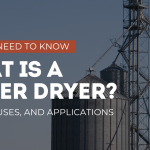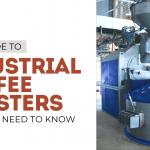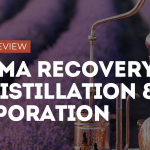In recent years, specialty coffee has transformed from a niche interest to a thriving industry. Behind every exceptional cup of coffee is a skilled roaster who has mastered the art and science of transforming green coffee beans into aromatic, flavorful roasted coffee. Whether you’re a barista looking to advance your career, a coffee enthusiast interested in home roasting, or an entrepreneur exploring a coffee roasting business opportunity, this guide will walk you through everything you need to know about becoming a coffee roaster.
The journey to becoming a coffee roaster combines passion with technical expertise, sensory development with business acumen. It’s a craft that rewards patience, dedication, and continuous learning. With the specialty coffee market projected to continue its robust growth, qualified coffee roasters are in increasing demand, making it an attractive career path for those with a deep appreciation for coffee.
What Knowledge and Skills Do You Need to Become a Coffee Roaster?
Becoming a proficient coffee roaster requires developing a specific set of knowledge and skills that form the foundation of the craft. These skills combine scientific understanding with sensory expertise and practical techniques.
How Important is Understanding Coffee Science?
At the heart of coffee roasting is a solid understanding of coffee science:
- Bean Structure and Composition: Knowledge of coffee bean anatomy, varieties, and how different beans respond to heat is fundamental. Understanding the cellular structure of coffee beans helps explain why they change color, expand, and develop flavors during roasting.
- Roasting Chemistry: The roasting process involves complex chemical reactions including Maillard reactions, caramelization, and pyrolysis. These reactions transform the bean’s sugars, amino acids, and other compounds into hundreds of aromatic and flavor compounds. Understanding these reactions helps roasters make informed decisions during the roasting process.
- Heat Transfer Principles: Effective roasters understand conduction, convection, and radiation heat transfer and how each affects the bean development during roasting.
How Do You Develop the Necessary Sensory Skills?
Coffee roasting requires refined sensory skills:
- Palate Development: Roasters must train their palate to identify and distinguish between various flavor notes, acidity levels, body characteristics, and potential defects in coffee.
- Sensory Analysis: Learning structured approaches to tasting coffee, such as the SCA cupping protocol, helps in evaluating roast quality consistently.
- Visual Assessment: Developing the ability to judge roast levels by color changes and bean development visually is crucial for consistency.
What Technical Skills are Required for Coffee Roasting?
Beyond sensory and scientific knowledge, several technical skills are vital:
- Roast Profiling: Creating, adjusting, and replicating roast profiles is perhaps the most critical technical skill. This involves controlling time and temperature variables to achieve desired flavor outcomes.
- Green Coffee Evaluation: The ability to assess green coffee quality, identify defects, and understand how different green coffee characteristics will translate after roasting.
- Quality Control Protocols: Implementing systematic approaches to ensure consistency across batches including sample roasting, cupping, and record-keeping.
- Food Safety and Handling: Understanding proper storage conditions, shelf life factors, and safe handling procedures for both green and roasted coffee.
What Education and Training Paths Can Help You Become a Coffee Roaster?
While there’s no single required educational path to becoming a coffee roaster, several training avenues can accelerate your learning and development.
Which Formal Education Options Exist for Coffee Roasting?
The specialty coffee industry has developed various educational paths:
- SCA Coffee Skills Program: The Specialty Coffee Association offers a Coffee Roasting module that provides structured education in roasting fundamentals, intermediate techniques, and professional methods.
- Dedicated Roasting Schools: Institutions like Boot Coffee Campus, Mill City Roasters, and Coffee Lab International offer comprehensive roasting courses ranging from a few days to several weeks.
- Manufacturer Training: Many roasting equipment manufacturers provide training programs for their specific machines.
- Coffee Science Certifications: Programs like UC Davis Coffee Center’s courses offer deeper dives into the science of coffee.
How Valuable is an Apprenticeship in Coffee Roasting?
Many successful roasters begin their journey through apprenticeships:
- Roastery Apprenticeships: Working directly under experienced roasters provides hands-on learning that’s difficult to replicate in classroom settings.
- Production Assistant Roles: Entry-level positions at established roasteries often provide opportunities to learn while performing supportive tasks.
- Mentorship Arrangements: Some experienced roasters offer structured mentorship programs for aspiring roasters.
What Self-Learning Resources are Available for Coffee Roasting?
For self-directed learners, numerous resources exist:
- Essential Books: “The Coffee Roaster’s Companion” by Scott Rao, “Coffee Roasting: Best Practices” by Rao, and “The World Atlas of Coffee” by James Hoffmann are considered industry standards.
- Online Courses and Communities: Platforms like Boot Camp Coffee, Roasters Guild, and Home-Barista forums offer valuable learning resources and community support.
- Industry Events: Attending events like SCA Expo, regional coffee festivals, and roasters camps provides networking and learning opportunities.
What Equipment Do You Need to Start Coffee Roasting?
Equipment needs vary dramatically based on your scale of operation, from home enthusiast to commercial roastery.
What Equipment Do Home Roasters Need?
For those starting at home:
- Entry-Level Roasting Devices: Home drum roasters (like the Behmor 1600 or KALDI), fluid bed roasters (like the Fresh Roast SR models), or even modified popcorn poppers provide affordable starting points ($200-$1,500).
- Basic Monitoring Tools: Thermometers, timers, and possibly simple data logging devices to track roast development.
- Cooling Systems: Methods to rapidly cool beans after roasting (often built into home roasters).
- Green Coffee Storage: Containers that protect green coffee from moisture, heat, and light.
- Roast Evaluation Tools: Simple cupping supplies for tasting and evaluating roasts.
What Equipment is Essential for a Micro-Roastery?
Scaling up to a micro-roastery requires:
- Small Commercial Roaster: 1kg to 5kg capacity roasters from manufacturers like Mill City, Diedrich, or Probat ($5,000-$25,000).
- Roast Profiling Software: Programs like Cropster or Artisan for precise profile development and replication.
- Quality Control Equipment: Professional cupping supplies, moisture meters, and possibly color analyzers.
- Packaging Solutions: Heat sealers, valve bags, and labeling systems.
- Ventilation System: Proper exhaust systems to manage smoke and particulates.
What Does a Full Commercial Roastery Require?
Commercial operations typically need:
- Production Roaster: 15kg+ capacity roasters ($30,000-$150,000+).
- Green Coffee Storage Systems: Proper storage for larger quantities of green coffee.
- Advanced Quality Control Lab: Refractometers, sample roasters, and comprehensive cupping stations.
- Production Software: Inventory management, roast profiling, and production planning software.
- Packaging Line: Automated or semi-automated packaging solutions.
- Environmental Control Systems: Afterburners, chaff collectors, and industrial ventilation.
What Business Requirements Should You Consider for Starting a Coffee Roasting Business?
Turning coffee roasting into a business involves considerations beyond the craft itself.
What Legal Requirements Apply to Coffee Roasting Businesses?
Several regulatory aspects must be addressed:
- Business Licensing: General business licenses at local and state levels.
- Food Processing Permits: Since coffee is a food product, specific permits are typically required.
- Health Department Approval: Most jurisdictions require inspection and approval of food processing facilities.
- Fire Department Permits: Due to the heat and potential fire hazards of roasting equipment.
- Environmental Permits: Emissions control may be required depending on your roaster size and location.
What Facility Considerations are Important for a Roastery?
Your physical space needs careful planning:
- Space Requirements: Allow for green storage, roasting area, cooling, packaging, and finished product storage.
- Utilities: Sufficient electrical capacity (often 3-phase power for larger roasters), gas lines if using gas roasters, and robust ventilation.
- Environmental Controls: Temperature and humidity control for both green coffee storage and production areas.
- Layout Efficiency: Workflow design to move coffee logically from receiving to shipping.
How Do You Source Green Coffee for a Roasting Business?
Establishing reliable supply chains is critical:
- Importers and Brokers: Relationships with reputable coffee importers who can provide consistent quality and variety.
- Direct Trade Relationships: For some roasters, establishing direct relationships with coffee producers offers quality control and ethical advantages.
- Sample Evaluation Process: Developing a systematic approach to evaluating and selecting green coffees.
- Inventory Management: Strategies for maintaining adequate stock without compromising freshness.
| Scale of Operation | Equipment Costs | Facility Costs | Initial Inventory | Permits & Licensing | Total Startup Range |
|---|---|---|---|---|---|
| Home Roaster | $500-$2,000 | Minimal | $200-$500 | N/A | $700-$2,500 |
| Micro-Roastery | $10,000-$30,000 | $5,000-$20,000 | $2,000-$5,000 | $1,000-$3,000 | $18,000-$58,000 |
| Small Commercial | $50,000-$120,000 | $20,000-$50,000 | $5,000-$15,000 | $2,000-$7,000 | $77,000-$192,000 |
How Long Does it Take to Become a Proficient Coffee Roaster?
Developing roasting proficiency is a journey that unfolds over different timeframes depending on your goals.
What’s a Realistic Timeline for Learning Coffee Roasting?
- Hobbyist Proficiency: 3-6 months of consistent practice to produce enjoyable coffee for personal consumption.
- Micro-Roastery Competence: 1-2 years of focused learning and practice to develop consistent, marketable roast profiles.
- Professional Mastery: 3-5+ years of dedicated work to develop the expertise needed for high-level professional roasting, competition-level skills, or teaching others.
What Challenges Do New Roasters Typically Face?
Understanding common obstacles helps in preparing for them:
- Consistency Challenges: Achieving repeatable results across different batches and conditions.
- Equipment Limitations: Learning to work within the constraints of your equipment.
- Sensory Development Plateaus: Periods where palate development seems to stall.
- Business-Craft Balance: For those running roasting businesses, balancing quality concerns with business realities.
- Green Coffee Variations: Adapting to seasonal and year-to-year variations in coffee characteristics.
Success Stories: Who Has Successfully Become a Coffee Roaster?
From Barista to Award-Winning Roaster: Maria’s Journey
Maria spent five years as a barista before becoming curious about roasting. She started with weekend apprenticeships at her café’s roastery, eventually enrolling in SCA roasting courses. After two years of part-time learning, she launched a micro-roastery focusing on experimental processing methods. Three years later, her coffees have won regional awards, and she now mentors new roasters while continuing to develop her craft.
The Engineer Turned Coffee Scientist: James’s Path
James, a mechanical engineer, became fascinated with coffee roasting after receiving a home roaster as a gift. His engineering background helped him understand the technical aspects quickly, but he struggled with sensory evaluation. By joining cupping groups and systematically tasting hundreds of coffees, he developed his palate. Four years after that first home roaster, he now runs a roastery known for its precisely developed profiles and technical innovation in roasting methodology.
What Are Your Next Steps to Become a Coffee Roaster?
Aspiring Roaster Skills Assessment Checklist
- [ ] Basic coffee knowledge (varieties, processing methods, regions)
- [ ] Cupping experience and basic sensory vocabulary
- [ ] Understanding of roast levels and their impact on flavor
- [ ] Familiarity with roasting equipment fundamentals
- [ ] Background knowledge in food safety and handling
- [ ] Basic business understanding (for those starting businesses)
- [ ] Connections within the coffee community
Realistic Progression Timeline
- Months 0-3: Foundation building – reading, cupping, observing
- Months 3-6: Initial hands-on experience with basic equipment
- Months 6-12: Developing basic proficiency and consistency
- Years 1-2: Refining skills, possibly formal education
- Years 2-3: Professional competence development
- Years 3-5: Mastery and specialization
- Years 5+: Innovation and leadership in the field
Essential Resources for Continuing Education
Books:
- “The Coffee Roaster’s Companion” by Scott Rao
- “Coffee Roasting: Best Practices” by Scott Rao
- “The World Atlas of Coffee” by James Hoffmann
- “Modulating the Flavor Profile of Coffee” by Rob Hoos
Courses and Organizations:
- Specialty Coffee Association Roasting modules
- Boot Coffee Campus programs
- Coffee Roasters Guild membership and events
Communities:
- Coffee Roasters Guild
- Home-Barista forums
- #RoasterLife on social media platforms
- Local coffee community events and cuppings
Becoming a coffee roaster is a rewarding journey that combines craftsmanship, science, sensory expertise, and often entrepreneurship. Whether your goal is home roasting for personal enjoyment or building a commercial roasting business, the path requires dedication to learning, practice, and continuous improvement. The coffee industry continues to evolve, with increasing appreciation for quality and craftsmanship – making it an exciting time to develop roasting skills.
By focusing on building a strong foundation of knowledge, investing in appropriate equipment for your scale, and connecting with the broader coffee community, you can develop the expertise needed to transform green coffee beans into exceptional roasted coffee that delights consumers and possibly builds a sustainable business.




